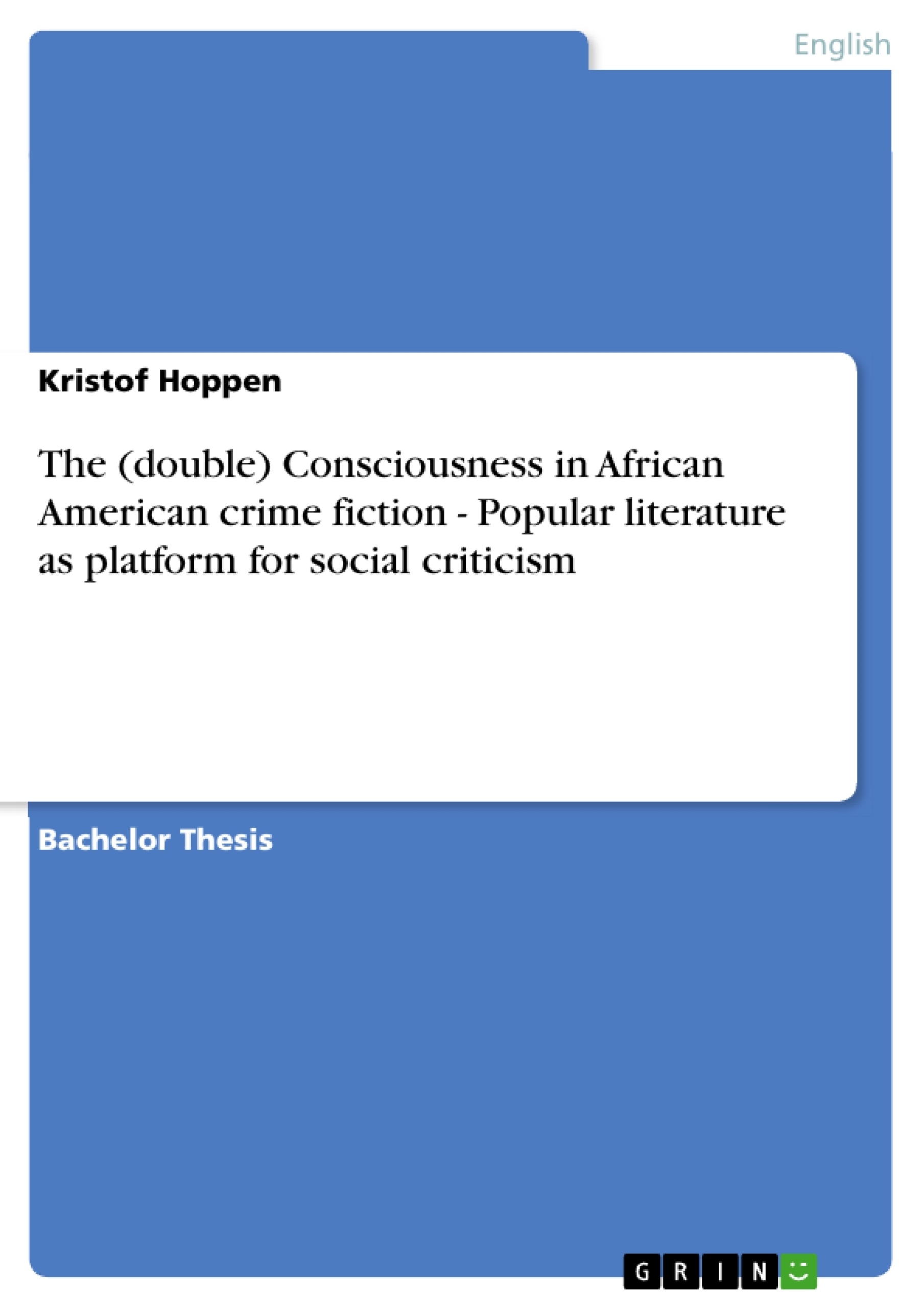This work deals with double consciousness in contemporary African American crime fiction. [...] In order to find out what characterizes African American crime fiction, or at least a part of it, and where it can be settled in this large field, two selected novels, Chester Himes’ Cotton Comes To Harlem and Walter Mosley’s Devil In A Blue Dress will be analyzed in the background of the concept of “double consciousness”, a term which was coined by W.E.B. Du Bois in his work The Souls of Black Folk in the early 20th century. [...]
Light will be shed on the generic features of the novels, such as the plot, the narrative structure, the imagery and the constellation of the characters. Afterwards a short outline of the development of the detective novel shall be sketched to provide the reader with a necessary knowledge which will help during the analysis of the works. [...] The thesis of this paper is that double consciousness is an omnipresent element in the selected works and that it shapes each character differently in a way that it might lead either to success or failure. Depending on how the specific character is able to recognize his/her own two consciousnesses, this awareness forms the character’s development in the plot and what he/she achieves in the end.
Table of Contents
- Introduction
- The detective novel
- Double consciousness
- Works discussed
- Himes' Cotton comes to Harlem
- Mosley's Devil in a Blue Dress
- Diving into Devil In A Blue Dress
- Plot
- Characters
- Narrative style
- Imagery
- Diving into Cotton Comes To Harlem
- Plot
- Characters
- Narrative structure
- Imagery
- Conclusion
Objectives and Key Themes
This work examines the concept of double consciousness in contemporary African American crime fiction. It explores how this concept shapes characters and their destinies, and investigates the genre's evolution from its traditional Eurocentric roots to an Afrocentric perspective.- Double consciousness in African American crime fiction
- The evolution of the detective novel from a Eurocentric to an Afrocentric perspective
- The impact of double consciousness on character development
- The significance of imagery and narrative style in conveying double consciousness
- The unique challenges faced by Black detectives in a society shaped by racial prejudice
Chapter Summaries
- Introduction: This chapter introduces the concept of double consciousness and its relevance to African American crime fiction. It argues that while crime fiction may be considered part of mass culture, African American crime fiction offers unique insights into the experiences of Black characters navigating a racially charged society.
- The detective novel: This chapter provides a brief overview of the evolution of the detective novel, tracing its roots from classic British mystery novels to the rise of the hard-boiled detective fiction. It highlights key features of the genre, such as its focus on violence, the typically white and male protagonist, and the role of the "femme fatale."
- Double consciousness: This chapter delves deeper into the concept of double consciousness, a term coined by W.E.B. Du Bois to describe the internal conflict experienced by Black individuals in a society that views them as "other." The chapter explores how this concept manifests in literature, and how it impacts the experiences of African American characters.
- Diving into Devil In A Blue Dress: This chapter analyzes Walter Mosley's novel, Devil in a Blue Dress, through the lens of double consciousness. It examines the plot, characters, narrative style, and imagery, highlighting how these elements reflect the protagonist's struggles with his own identity and the realities of racial prejudice.
- Diving into Cotton Comes To Harlem: This chapter follows a similar format, focusing on Chester Himes' Cotton Comes To Harlem. It analyzes the plot, characters, narrative structure, and imagery, examining how double consciousness shapes the characters' actions and the themes explored within the narrative.
Keywords
African American crime fiction, double consciousness, detective novel, hard-boiled detective, Eurocentric, Afrocentric, Walter Mosley, Chester Himes, Devil in a Blue Dress, Cotton Comes to Harlem, racial prejudice, identity, character development, narrative style, imagery.- Arbeit zitieren
- Kristof Hoppen (Autor:in), 2008, The (double) Consciousness in African American crime fiction - Popular literature as platform for social criticism, München, GRIN Verlag, https://www.grin.com/document/112119



